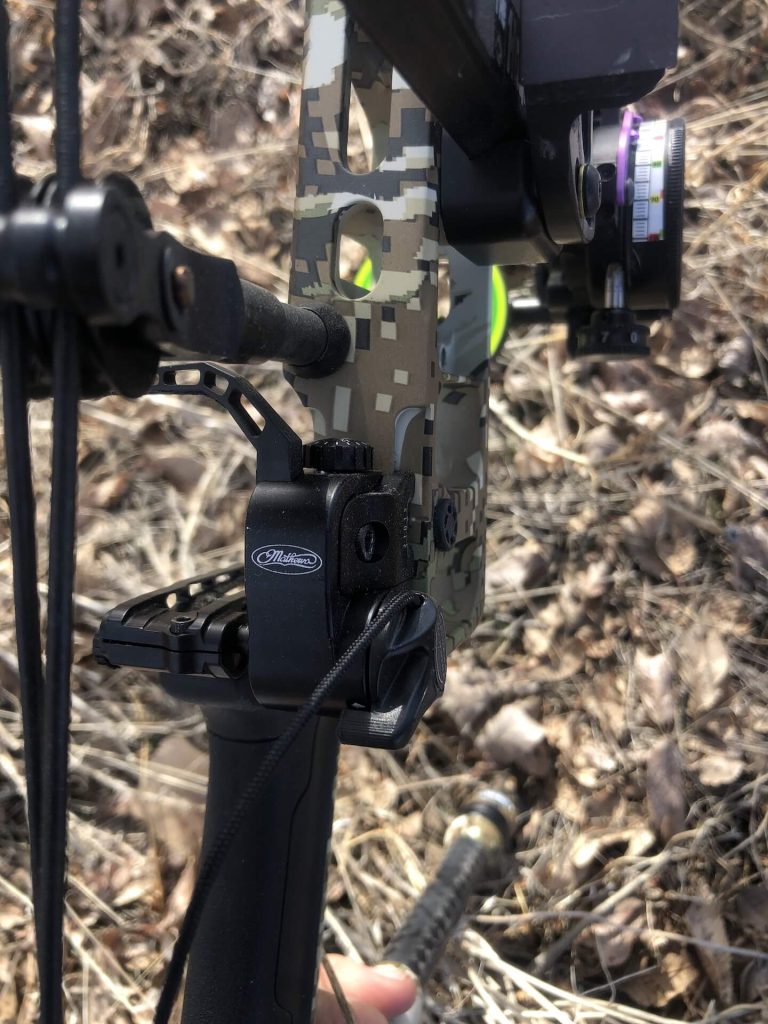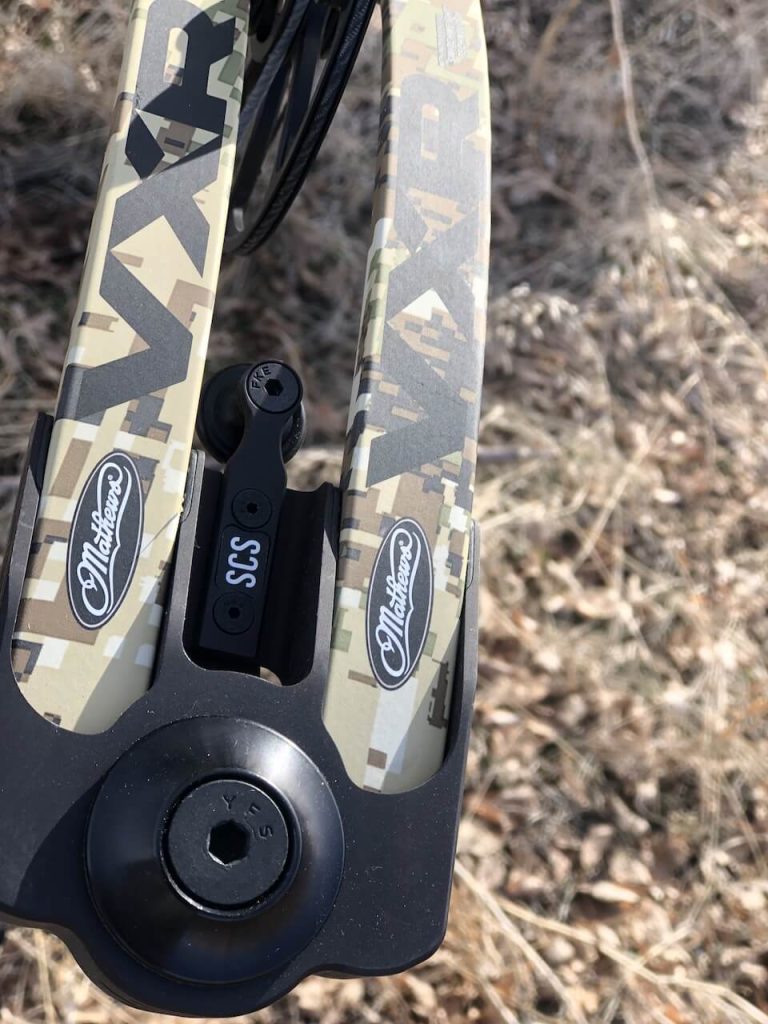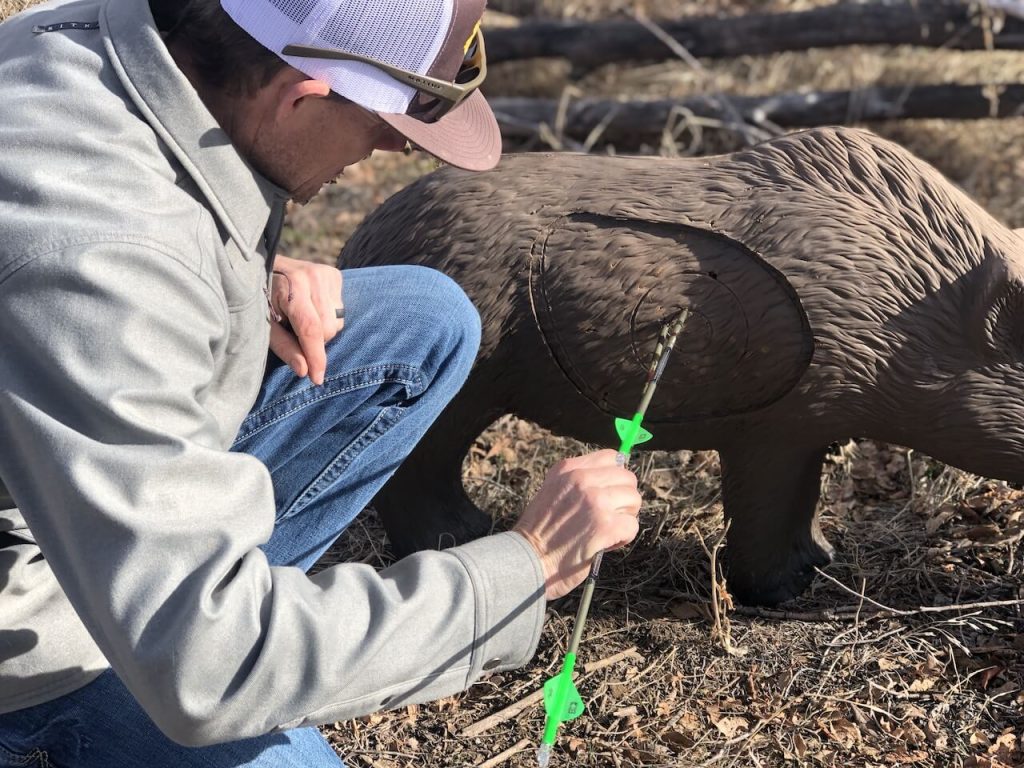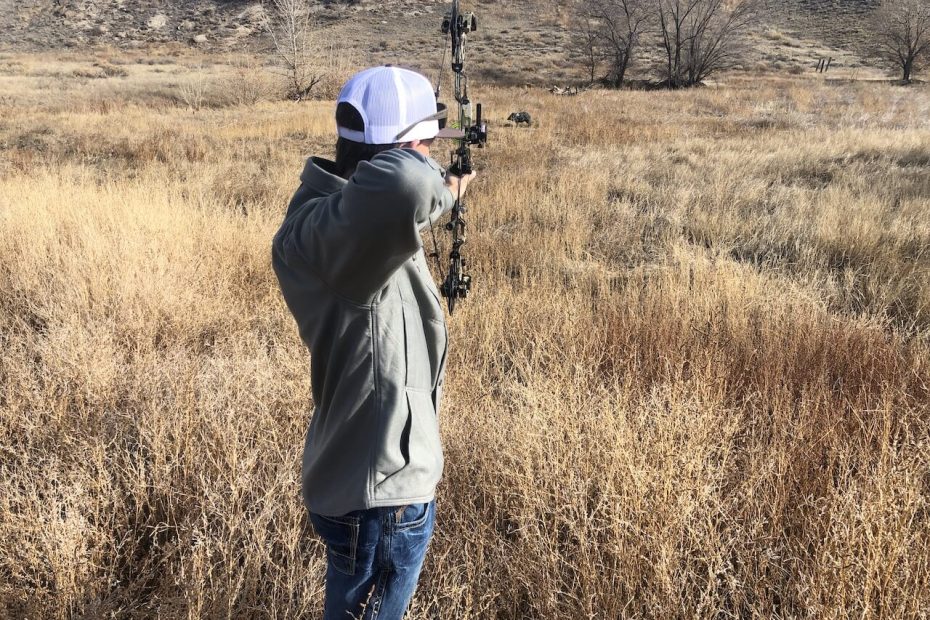
Bow engineers are truly remarkable people. They spend a year designing an accurate, balanced and dependable marvel loaded with purposeful technologies. They put their heart and soul into the make, and then it’s unleashed to the masses. Bowhunters love it, for about nine months. Then, they want to know what’s next. You see, unlike the gun market where a model typically stays in existence for a grip of time, bows get discontinued. The big manufacturers launch new models every single year. The pressure to please the stick-and-string public is unreal, yet vertical bow makers continue to impress.
For 2019, Mathews launches its VXR. A fan of recent rigs like the Triax and Vertix, I was excited to put the VXR through the paces. While axle-to-axle lengths seem to fluctuate by manufacturer, I will note I prefer a longer bow, so I went with the VXR 31.5. Of course, the 31.5 in the name represents the bow’s measurement between its axles. Mathews, for all you short axle-to-axle lovers, also launched a 28-inch model. Let’s dive in.
Rundown
I’ve never unboxed a Mathews that sported any type of finish flaw. The cloaked-in-Subalpine riser and limbs on the VXR followed suit and held up to my scratch test. The string and cables showed zero frays and the cams and limb pockets had no dings, nicks or scratches.

A quick up-and-down glance of the rig revealed some familiar-from-2019 features. I was thrilled to see the dovetail silts designed to accept the mount-to-the-face-of-the-riser QAD Integrate MX rest back on the VXR. Other return features include the Crosscentric Cams with Switchweight Technology and 3D Damping Technology. The ergonomic Engage Grip is also back. Thank God! I love that grip. It’s perfectly angled, thin, but not too thin, and melts into the palm-swell area.

Mathews knows they have something sweet cooking with their bridged-riser design, and while it’s back for 2020, it got a slight upgrade. The riser on both VXR models is now a six-bridge riser. The design, according to Mathews engineers, boosts bow stability. A stable platform leads to repeatable accuracy. The new platform also shaves weight from the bow (4.66 pounds without accessories) without compromising strength and durability. Mathews’ hope with the design is that the VXR would hold like a target bow. We will see.

Another new feature was the SCS (Silent Connect System). It’s important to note that this is an addition, and is sold separately by Mathews. Pre-drilled holes between the limbs accept a total of four screws. Attachment took me all of five minutes. Built into the limb pockets, this system was designed specifically for Mathews’ new SCS kit. The kit allows for quick and hushed attachment of the new-for-2020 Mathews genuine bow rope and bow sling. More to come on this.

Setup
Mathews bows are a dream to tune. My VXR model was no exception. The bow arrived set at 70.64 pounds. A quick adjustment of the limb bolts, which were chatter-free, allowed me to set the bow perfectly at 70 pounds. The bow pressed easily and attachment of all accessories was problem-free. I so appreciate the grooved aluminum slits on the top of each split-limb. The slits accept bow press grippers perfectly.
If you buy either VXR model and don’t purchase the QAD Integrate MX rest, you’re doing yourself a disservice. This rest is the future of drop-away rest design. Launched in 2019 as part of an exclusive partnership between QAD and Mathews, the Integrate MX mounts directly to the face of the bow’s riser. No Berger hole and no mounting bar. This design reduces weight, ensures zero chance of rest movement and boosts overall tunability. I loved it, and so did Mathews.

Separating the Zebra string and cables and inserting my 3/16 Meta Pro peep and tying in my drop-away cord took minutes. Standing eight yards from a piece of tuning paper, I drew. Wow! The bow, set at 80 percent let off, pulled like a dream. The draw, much like the Traverse and Vertix, was silk, and transition to let off happens with such subtleness you hardly notice it. As the cams rollover, a pair of felt-padded arms contact the bow’s inner cable. A back-tension release fan, I love cable stops. Cable stops allow me to better pull into my bow. For those that prefer limb stops; don’t fret. The back wall isn’t at all spongy.
My first shot with my 28-inch, 490.1-grain Easton FMJ 5MM arrows through paper produced a minor nock left tear. A quick move of the rest toward the riser was the cure. My second shot produced a perfect tear. For grins, I shot a bare shaft through paper. It produced a perfect bullet hole.

When it comes to speed, I honestly don’t really care. I tend to shoot a heavy arrow and place my focus on pinpoint accuracy. Of course, if the bow produces a little heat and shootability isn’t sacrificed, I’m all for it. This bow sacrificed nothing in terms of shootablity and posted a three-arrow average speed of 282. My draw length, for those wondering, is exactly 29-inches.
While my first arrows out of the VXR were shot indoors, it was obvious the bow’s shootability was, well, amazing. The hold and aim are remarkable. In addition, and, yes, I’ve said this before about the Triax, but this is the quietest bow I’ve ever shot. The six-bridged riser design marries perfectly with 3D Damping Technology to squelch noise and suck up vibration like a vacuum. You have to shoot it to believe it.
On The Range
Outdoor testing was performed with 100-grain Easton field points, SEVR 2.1-inch cut Titanium expandable and Wac ‘Em 100-grain four-blade heads. Shots were taken from 20 to 100 yards. Testing conditions were cold — 28-degrees Fahrenheit with a 9 mph crosswind. Wind direction was from the north, which pressed on the arrow’s left side.
My advice: look at the pictures and read the captions below. They will show and describe this bow’s accuracy. Like every single Mathews I’ve ever shot, the accuracy of the VXR is incredible. Mathews wanted to build a hunting rig that operates as a target bow … mission accomplished. Shooting this bow is pure joy.



In The Stand
While all my archery tags were punched by the time I got my hands on the 6-inch brace height VXR, I did climb up in a treestand to test the SCS System. Brilliant. Though I didn’t get to test the bow sling, the bow rope attached easily and raising and lowering the bow was easy and quiet.

Final Thoughts
This bow is a win. Period! It’s quiet, hushed, accurate and during two months of testing, never faltered. If you’re in the market for a new-for-2020 vertical bow, this one is worth a test drive.
